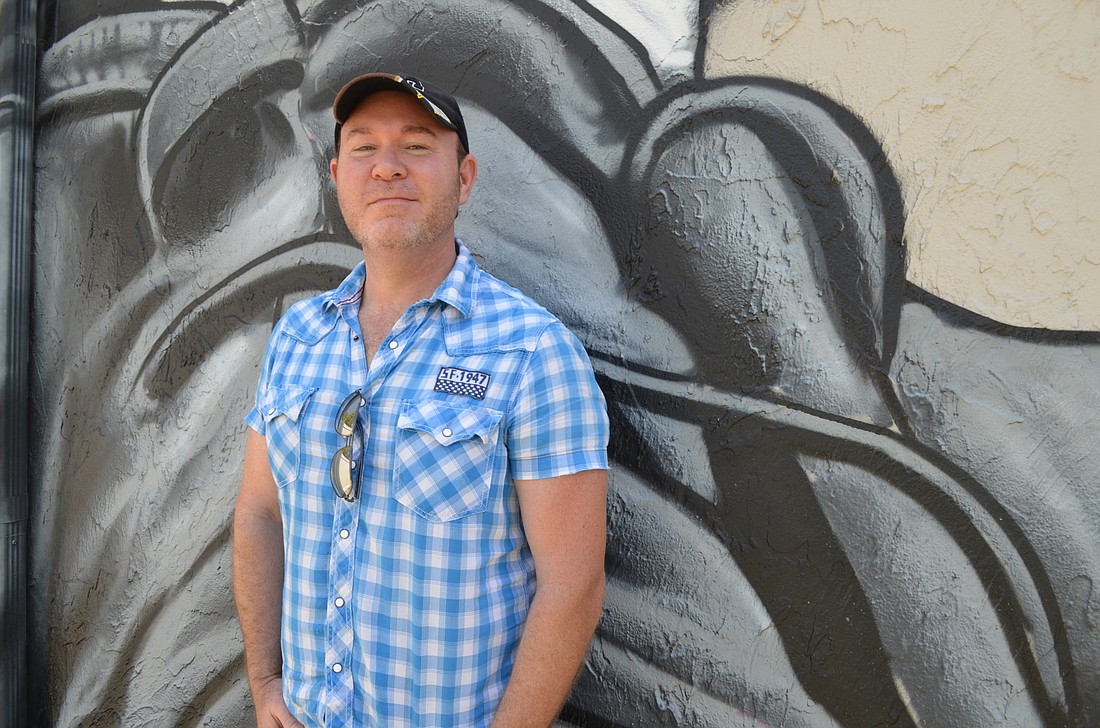- November 24, 2024
-
-
Loading

Loading

Llywelyn Jones has an interesting relationship with the phrase “the end.” For many, the words mean just that — the story is over. But, like any good writer, Jones knows that’s when the real work begins: during the editing process.
“Every time I write those words,” he says, “it’s not even close to the end. It’s the beginning of a whole new process. It takes countless revisions to get something to its true potential. That’s the hardest part.”
The local playwright has won the Players Centre for the Performing Arts’ New Play Festival three times. The annual competition returns this week, and he’ll once again participate, presenting a reading of his play, “Anatomically Speaking.”
But for him, it’s not about winning. In this festival, he says, simply participating is its own prize. Having your winning play produced on the theater’s main stage is a great opportunity, but more than that, participants get something invaluable to the writing process: feedback.
“Writing a play is very much a solo activity,” he says. “You’re in your own head, working in a vacuum. When you get the chance to see your play read out loud on a stage, in front of an audience, suddenly there’s a spotlight on it, and you can see things you never could before. Every writer needs a good editor. And here, the audience is my editor.”
PEARLS OF WISDOM
The annual New Play Festival, running through July 1 in its 15th year, offers a unique opportunity, not just for new playwrights, but also for actors, directors and audience members.
“This isn’t like anything else,” says Jones. “Normally, you watch a show, and you either clap, or you laugh. If you have a critique, it’s probably something you voice on the car ride home. How great would it be to be able to talk to your favorite director with your feedback? Here, the audience actually gets to do just that. They get a voice.”
Each year, theater staff narrows down dozens of submissions to what they consider to be the five strongest plays with the best potential to become a mainstage production. The playwrights are paired with a director and audition up to eight actors to read their script. They rehearse a few times, and then the actors read the works at the theater over the course of a week. Each concludes with a 15-minute audience talkback, and the winning play earns a spot the following season on the theater’s mainstage.
According to Artistic Director Jeffery Kin, the production and rehearsal are intentionally minimal. The focus here is on the words and the artistic feedback.
“I call them pearls of wisdom,” he says. “Audiences know what they like and what they don’t. The goal is to take their critiques and find out, from a technical, theatrical standpoint, why they felt that way. Did we veer from the main plot? Is there unresolved conflict, or unnecessary character development? Theater is about connecting with your audience, and there’s no better way than this to learn what’s resonating.”
Kin has been the theater’s artistic director and festival organizer for 10 years. But before that, he was on the other side of the stage curtain. He entered the first play he ever wrote, “Always A Part of Me” into the festival in 2006. It won the festival.
He had been involved in theater in various capacities since childhood, but this was his first foray into writing. Seeing his own words brought to life and hearing immediate critiques was a new, exciting experience.
“Some of my favorite moments in theater have been behind the curtain, watching an audience watch my play,” he says. “When do they gasp? When do they laugh? When are they moved? They’re taking that ride with me, and there’s nothing quite like that.”
JUST THE BEGINNING
The most crucial part of the process, says Kin, is being open to revisions. Being able and willing to listen objectively to people’s comments and make appropriate revisions is key in creating a successful piece of theater.
With his winning play from 2015, “Why Can’t I Be You?” debuting in August and “Anatomically Speaking” playing this year, Jones says he’s anxious to see what people think of the production and his revisions. But mostly, he appreciates a community theater giving local playwrights an opportunity to start a career.
He’s used past audience feedback to rewrite plays, win the festival, earn artist grants and get educational work published. It all started, he says, with the New Play Festival.
“It’s exciting,” he says. “Audiences can see the creative process from beginning and voice their opinion to help shape a piece of art. In the end, it doesn’t matter if you win or lose. You’ve gotten priceless feedback to create a better play. You’ve already won.”